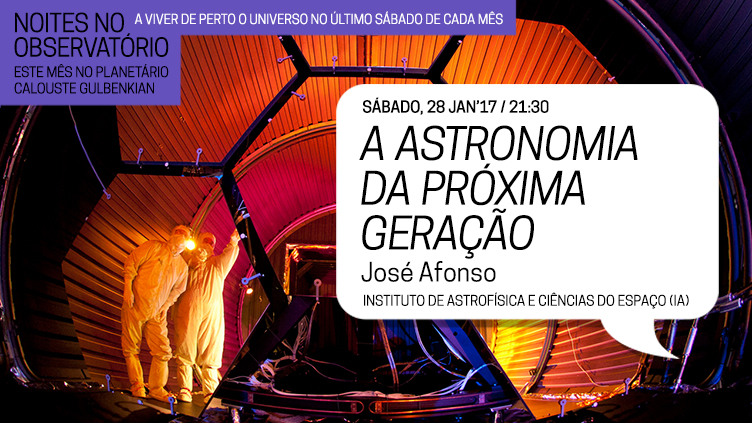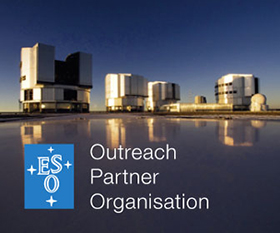Astronomy of the Next Generation
By José Afonso, of Instituto de Astrofísica e Ciências do Espaço
Astronomy is experiencing today a golden age of new discoveries. Everything seems to be already on the horizon: new Earths, black holes, the birth of the first galaxies in the Universe, and maybe even the discovery of other forms of Life.
Learn more about the lead characters of this new age, powerful telescopes which promise to take us closer to the unattainable.
After the public talk, there will be a music and effects show projected on the planetary dome, and observations of the night sky will run continuously until midnight, if weather conditions allow.
Share
Duration:
3 hoursFree entrance
Registration
Although the entrance is free of charge, the access to the activity requires a registration here.
Due to the growing audience attending our activities and the fact that some people give up without notice, an email will be sent asking for confirmation. The lack of a reply within 48 hours after the reception of this confirmation request will be taken as a dropout and the registration will be cancelled. For this reason, please check your email inbox regularly in order to confirm your attendance in the activity.
Important:
The observation of the night sky depends on the weather conditions. As this is run outside, we recommend the use of warm clothes.
The talk is given regardless of the observations. The Calouste Gulbenkian Planetarium will open its doors half an hour before the event starts.
The public talk is given in Portuguese.
Location
Planetário Calouste Gulbenkian - Centro Ciência VivaMuseu de Marinha
Praça do Império
Lisboa
How to get there
By car
GPS – 38.698140, -9.208919
By bus
714, 727, 28, 729, 751 e 201
By tram
15
By boat
Estação fluvial de Belém ( Transtejo)
Live broadcasting
You can watch the event from home and ask questions to the speaker visiting this online address.
The online broadcasting of the talks has the support of the Fundação para a Computação Científica Nacional (FCCN), a division of the Fundação para a Ciência e a Tecnologia (FCT).


